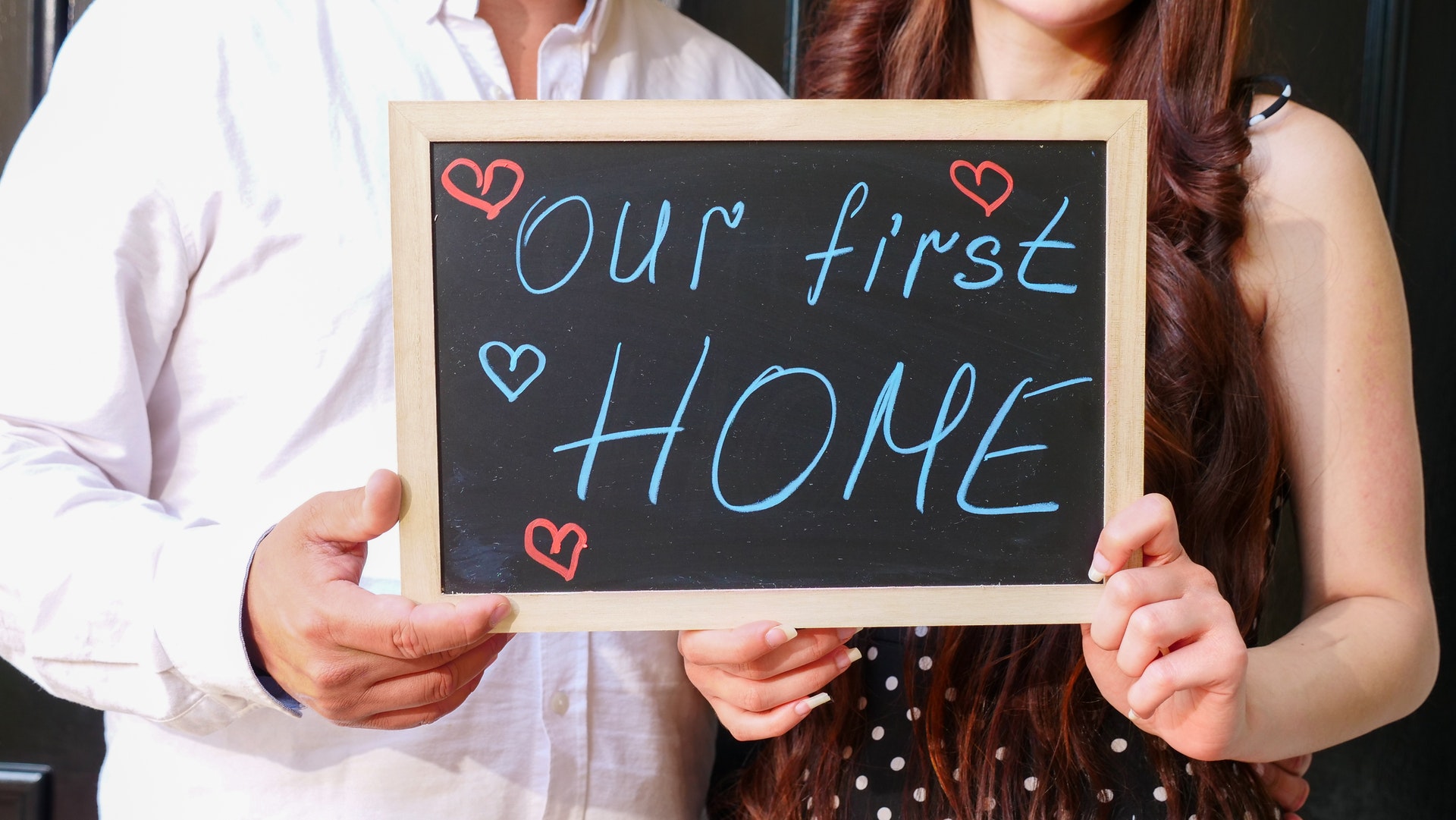A no money down mortgage sounds appealing. Even though there are quite a few costs to be expected when buying a home, the down payment continues to be the biggest barrier to homeownership and ranked as the number #1 concern for potential home buyers.
A down payment simply means paying a percentage of what the house is worth which allows you have some equity. For instance, if a house is worth $300,000 and you inform the lender that you’re making a 10% down payment, that will be $30,000.
The down payment is typically the largest money you need to provide during the mortgage process.
In a no money down mortgage, quite the opposite is happening. You’re not required to bring any monies to the closing table even though you’ll be responsible for other costs like appraisal and inspection.
The mortgage lending landscape is filled with different types of loans and it’s important for you to understand what the most common loan types have to offer.
1. No money down – VA Loans
The VA Loan is a federally guaranteed home loan provided to veterans which allows for no money down.
The loan was designed to provide housing and assistance for veterans and their families and make the dream of homeownership become a reality for millions of veterans.
VA mortgage loans are for:
- Veterans
- Active duty service members
- National Guard members (and)
- Reservists
Anyone applying must meet the basic service requirements according to the Department of Veterans Affairs.
Spouses of military members who died while on active duty or as a result of a service-connected disability may also be eligible.
The most beneficial part of the VA loan is, they have no private mortgage insurance (PMI) even with no money down. However, it comes with a funding fee.
A funding fee is a government fee applied to VA purchase and refinance loans. This fee is paid to the Department of Veterans Affairs to keep the program running for current and future veterans. In some instances, the borrower may be exempt from paying the fee.
A basic funding fee of 2.3% must be paid to the VA by all but certain exempt veterans. A down payment of 5% or more will reduce the fee to 1.65% and a 10% down payment will reduce it to 1.40%.
VA buyers don’t have to pay the funding fee in cash and so many choose to finance it into the loan.
2. No money down – USDA Loans
The US Department of Agriculture (USDA) is another special home loan guaranteed by the government. This program helps lenders work with low and moderate income families living in eligible rural areas to make homeownership a reality.
The program provides a 90% loan note guarantee to approved lenders in order to reduce the risk of extending 100% loans to eligible rural homebuyers.
Your credit score must be at least 620 and your debt-to-income ratio (DTI) must be 50% or lower.
The borrower must agree to personally occupy the dwelling as their primary residence. The USDA is only allowed on new or existing residential property to be used as a permanent residence. No investment properties allowed.
The property must be in an eligible rural area and must not be a working farm. Find out if your property is eligible.
3. Low money down – FHA Loan.
The Federal Housing Administration (FHA) started insuring mortgages provided through lenders to help first-time homebuyers particularly low to moderate-income individuals achieve their dream of homeownership.
FHA loans became really popular with potential home buyers because of its flexibility.
You could put down as little as 3.5% while non FHA borrowers usually require at least a 5-10% down payment. The minimum credit score to qualify for FHA is 580 but a lower score will not automatically disqualify you.
If your credit score is between 500-579, you won’t be denied the mortgage but will be required to make a 10% down payment.
However, as a home buyer, you would have to get and pay private mortgage insurance (PMI) to protect the lender in case you default on the mortgage.
4. Low money down – Conventional Loan.
A conventional loan is also called a conforming loan because it adheres to the accepted standard and can be changed if the borrower and the lender agree. A conventional loan is not backed by a government like FHA.
The minimum credit score for approval by most lenders on a conventional loan is 620.
You will also be required to make a down payment of 5% of the purchase price. (Note: this rule changed recently and conventional loans now allow 3% down payment which is .5% less than the FHA loan. You will be required to pay PMI.
Is a no money down mortgage the right way to go?
Buying real estate with no money down requires that you understand the details of your loan so you can set your expectations accordingly.
Your eligibility can also assist you in making a decision faster.
Are you a veteran? Are you in a USDA area or are you willing to buy your property in an eligible USDA area? If yes, then you may be able to purchase a home with no money down.
With a no money down mortgage, your total costs are usually higher. You are most likely going to have higher interest rates and a high payment – unless you have determined the monthly payment is within your budget.
In addition to having a higher interest rate, private mortgage insurance (PMI) will be included in your payment.
What is private mortgage insurance (PMI)?
Private mortgage insurance (PMI) is a type of insurance added to your monthly payment to protect the lender if you default on the mortgage.
Homeownership is an investment that often presents its own risks and to protect the lender, they charge an extra fee to minimize their loss.
Private mortgage insurance is not refunded if you don’t default and the lender will remove private mortgage insurance when you have 20% equity.
Some Key Ways To Prepare Yourself for Homeownership
Homeownership is a major investment, milestone, and one worth preparing for. It is crucial you put your ducks in a row before you start contacting any lenders. How can you prepare yourself for homeownership?
1. Pace Yourself:
You have to start saving for homeownership well before you’re ready. The moment you even think you would like to own your own home someday, start preparing for it.
While most buyers are more concerned with the down payment, there are various costs like appraisal, inspection, closing costs, reserves and even moving costs that are rarely considered yet are necessary.
2. Do your research:
There are a number of programs in every state that provide down payment assistance which allows you to purchase your home with no money down and reduce the financial pressure of making a huge down payment as a first-time homebuyer.
Many lenders can also help facilitate the process because a good lender is usually aware of programs within the state. Down payment assistance comes in many forms like a matched saving through a bank, a grant, or a loan will less stringent terms.
Ask your lender about available programs.
3. Work on your credit:
Your credit determines the interest rate you will receive. Borrowers with the best credit score will most likely get more favorable terms.
In addition, you want to work on your credit before submitting a mortgage application so you can give yourself time to correct any errors. Once your application is with a lender, you’re officially on the clock.
If the lender discovers any issues with your credit report before you do, there isn’t much time for you to fix it.
4. Reduce your consumer debt:
There are so many types of debt from credit cards, car notes, personal loans, and student loan debt all of which affect your debt to income (DTI) ratio.
Most lenders view a high debt to income ratio as risky. The less debt you have before buying a home, the more likely it is that your application will be approved.
Getting a no money down mortgage is not impossible if you’re eligible, know the details of the terms and you’re willing to compromise. Different lenders offer different rates and conditions.
Be sure to shop around and ask all the right questions so you can make an informed decision.




